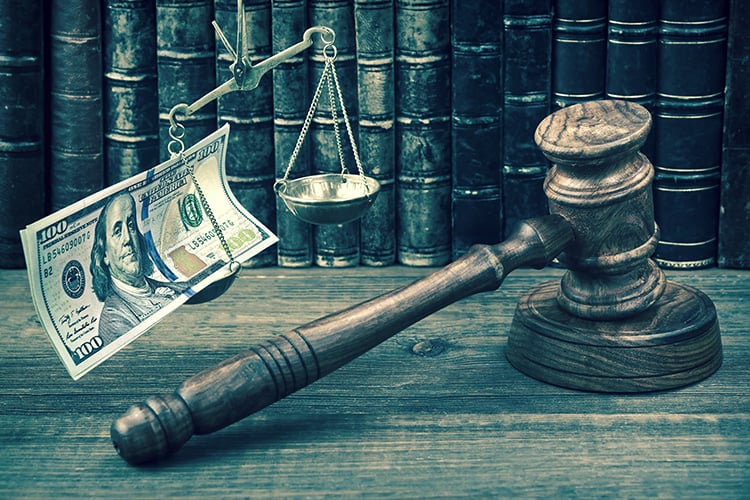Supreme Court deals blow against civil forfeiture in ruling for owner of seized Land Rover

Updated: The U.S. Supreme Court ruled Wednesday that the Eighth Amendment's ban on excessive fines applies to the states in a decision that could curb state seizure of property from criminal suspects.
The court ruled on behalf of Tyson Timbs, who was fighting the civil forfeiture of his $42,000 Land Rover after he used it to sell heroin to undercover officers for $225. The maximum fine for the drug charge to which he pleaded guilty was $10,000.
Timbs had purchased his Land Rover with insurance proceeds after his father’s death. Indiana had alleged the vehicle was used to transport heroin and moved to seize it. A trial judge agreed the car had been used to facilitate violation of a criminal statute, but barred the forfeiture because it would be grossly disproportionate to the gravity of Timbs’ offense.
The Indiana Supreme Court had allowed the state to proceed with the forfeiture, however, after noting that the U.S. Supreme Court has not applied the excessive fines clause to the states.
The Eighth Amendment reads: “Excessive bail shall not be required, nor excessive fines imposed, nor cruel and unusual punishments inflicted.” The constraints on excessive bail and cruel and unusual punishments have previously been held to apply to the states, according to the Institute for Justice, which represented Timbs.
When ratified in 1791, the Bill of Rights applied only to the federal government. The Supreme Court has gradually applied the Bill of Rights to the states using the 14th Amendment, adopted after the Civil War.
In her opinion for the court, Justice Ruth Bader Ginsburg said the excessive fines clause was an incorporated protection that applied to the states as a result of the 14th Amendment’s due process clause.
“The protection against excessive fines has been a constant shield throughout Anglo-American history: Exorbitant tolls undermine other constitutional liberties,” Ginsburg said.
Justices Neil M. Gorsuch wrote a concurring opinion and Justice Clarence Thomas concurred in the judgment. There were no dissents.
Thomas had argued the excessive fines clause applies to the states through a different provision of the 14th Amendment—the privileges and immunities clause. Gorsuch said he may agree with Thomas, but nothing in the case turns on that question and “there can be no serious doubt” that the Eighth Amendment applies to the states.
The American Bar Association had submitted an amicus brief in support of Timbs, “to urge the court to consider the fundamental importance of the right to equal justice without regard to economic status and the essential role of the excessive fines clause in preserving that right.” The amicus brief touted the work of the ABA Working Group on Building Public Trust in the American Justice System, and its Ten Guidelines on Court Fines and Fees, which was adopted at the ABA Annual Meeting in August.
Timbs was represented by lawyers Wesley Hottot and Sam Gedge of the Institute for Justice.
“Today’s ruling should go a long way to curtailing what is often called ‘policing for profit’—where police and prosecutors employ forfeiture to take someone’s property then sell it, and keep the profits to fund their departments,” Hottot said in a press release. “This gives them a direct financial incentive to abuse this power and impose excessive fines.”
Timbs is being treated for drug addiction and is holding down a job, according to the press release. His goal now is to get his car back so he can more easily go to work, meet with a parole officer and go to a drug recovery program.
The case is Timbs v. Indiana.
Related article:
ABA Journal: “What can states seize? SCOTUS will decide whether the excessive fines clause applies to states”
Updated at 7:41 p.m. to add information about the ABA’s amicus brief and links to previous coverage.
Write a letter to the editor, share a story tip or update, or report an error.


